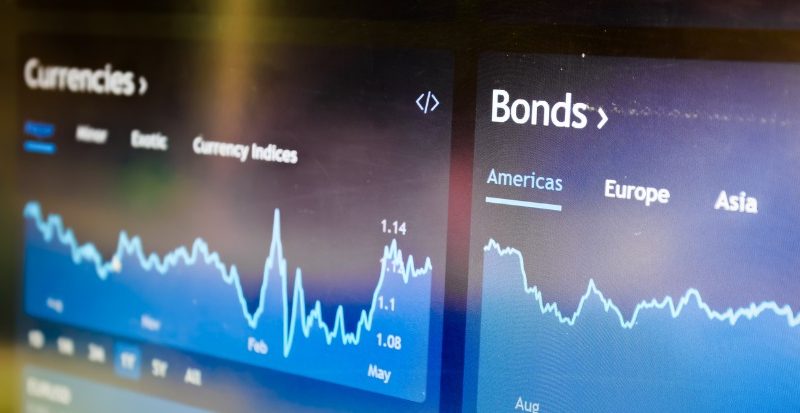by Jared Dillian, The 10th Man
Twenty years ago, people on trading floors at investment banks worked in silos. Pretend you were the GE trader. You spent all day staring at GE, and not much else. You didn’t know anything about interest rates, commodities, oil, volatility, or anything. You just sat there staring at GE all day. That was a trading floor in 2002.
Things have changed since then. People have gotten smarter, and they do look at cross-asset stuff, but they are still pretty siloed. The one thing that made me unique on the Lehman Brothers equity trading floor is that I looked at everything. And I had to because there were ETFs for everything. There were ETFs for stocks, bonds, commodities, and currencies. I became, without really realizing it, a macro trader.
In particular, I paid a lot of attention to bonds. I liked my fixed income classes the best in business school, and Lehman’s training program was about 80% focused on bonds. And I did very well in those classes, while everyone else was screwing around. Lehman was a bond shop, and I wanted to be a bond trader. It didn’t work out that way. I had a particular affinity for rates, thinking that I might play a role in setting the world’s most important price: the 10-year interest rate. Instead, I got stuck as the snail cleaning the financial markets fish tank.
How I Became a Bond Expert
In 2013, I became an adjunct professor in the business program at Coastal Carolina University. For four years, I taught a class called Financial Institutions & Markets, which had a lot of bond math in it. You know how it is—when you teach something, you learn it really well. So that is how I became an expert on bonds, and that is how I came up with the Bond Masterclass.
What is the Bond Masterclass? Think of it as a semester-long course in bonds, but instead of deriving formulas and crap like that, you learn the concepts behind how bonds work. You learn the relationship between bond prices and interest rates in a way that you never understood before. I am fond of saying that if you only know about stocks, you know nothing about finance. But if you know about bonds and options, you know everything about finance.
You see, stocks are easy to understand. Stock goes up, you make money. Stock goes down, you lose money. With bonds, the relationship between prices and interest rates is nonlinear. And once you start talking about corporate bonds, it gets even more complicated. But I have known lots of people on bond trading desks. Some of them are not that smart. Certainly not as smart as you. You could do the job if you had to. It just takes some basic knowledge to get started.
And it’s really not that hard. If you took an actual class on fixed income at a college, it would require some knowledge of calculus. You would be pretty lost if you hadn’t taken it. But here, we take out the complicated mathematics, making it optional—all the formulas are there if you want to see them. If you regularly read The 10th Man, there’s nothing in this course that’s over your head. All it takes is a small investment of time—put aside a weekend when you’re not doing anything, sit down with the Bond Masterclass, and you’ll get a lot smarter. Guess what—I’m going back to teaching in 2023, and I’m going to use the Bond Masterclass in my classes.
High Return on Investment
The return on investment is high. Now, when you watch financial TV, you won’t be lost when they talk about the yield curve. Actually, CNBC doesn’t spend a lot of time on bonds, but if you watch the more highbrow stuff over at Bloomberg, it will make a lot more sense. One thing you will learn is why the losses inflicted by rising interest rates were so devastating the last two years: Lower-coupon bonds have higher duration, and duration is the sensitivity of bond prices to interest rates.
The other reason the return on investment is high is because people tend to have a low affinity for things they don’t understand. We all need bonds in our portfolios, but if you don’t know how they work, you might not understand why. My guess is there are a lot of people out there who don’t own any bonds simply because they don’t understand them. Contempt prior to investigation. Why should I have these low-yielding bonds along with my high-returning stocks? There are reasons.
The Bond Masterclass isn’t a subscription-based product. It’s a one-time course that normally costs $399, but we’re offering it for $299 right now because I want you to have this information. I think it’s priced fairly, considering you would have to spend at least 10 times that amount on a college fixed income course. And it comes with a money-back guarantee. If this doesn’t improve your financial knowledge, simply call us up and we’ll happily refund your money. But I think you’ll be more than satisfied. Just click here to get started.















